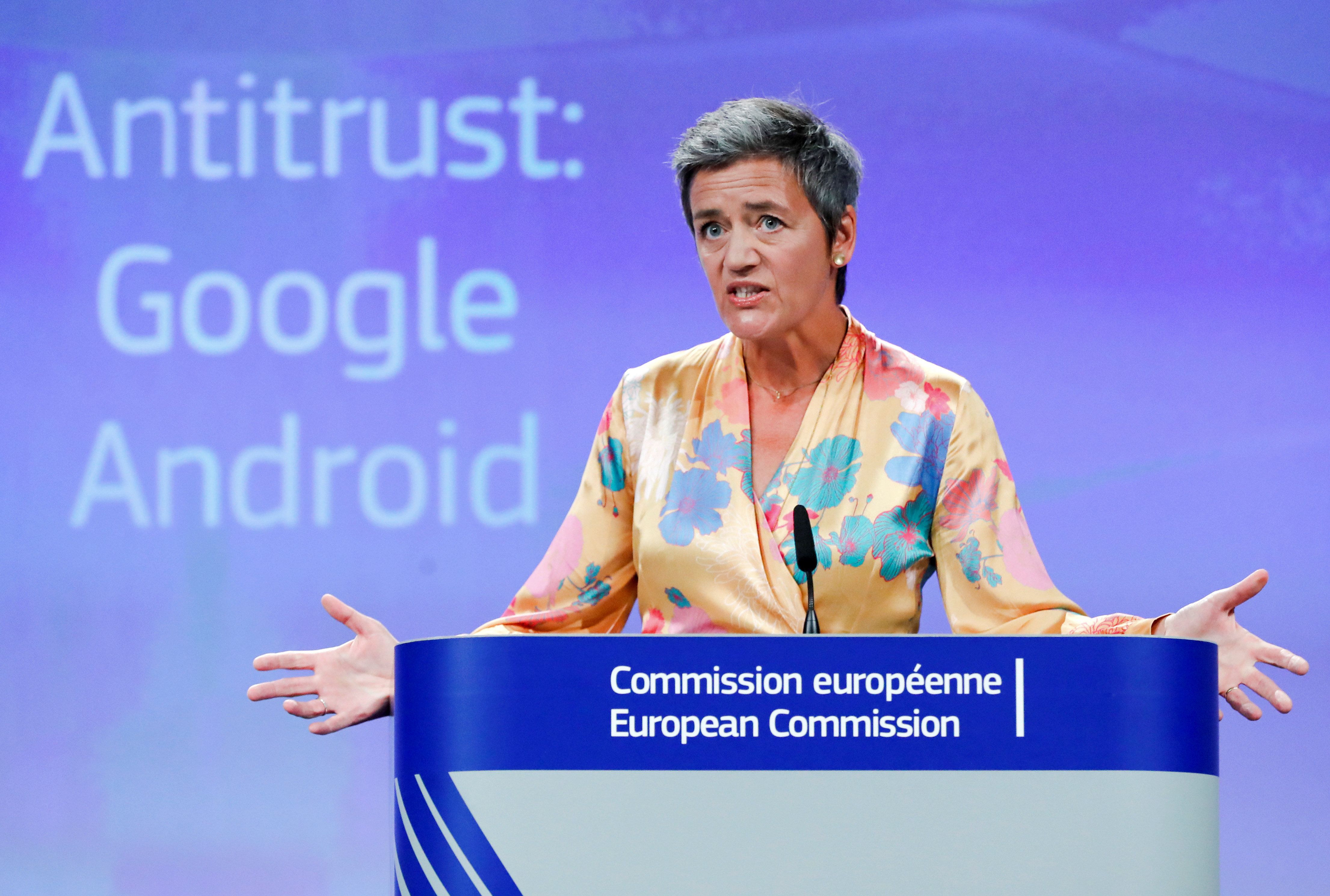July 20, 2018
On Wednesday, the European Union slapped Google with a record $5 billion antitrust fine, the latest in a string of judgments levied by EU competition czar Margrethe Vestager against US tech companies that dominate the mobile, online advertising, and internet search markets.
This is “Team Europe: Internet Police” in action: by taking on what they consider to be Silicon Valley’s excessive clout (in this case, the EU says Google used the market dominance of its Android operating system to force consumers to use its search engine), European regulators are seeking to shape the ways that global tech companies do business locally. If Google fails to get the case overturned on appeal, it’ll have to make big changes to the way it operates in the EU and, potentially, elsewhere.
A few thoughts from our own tech czar Kevin Allison:
This is not just a European phenomenon. Governments around the world are racing to assert sovereignty over an unruly and rapidly expanding digital sphere. Whether it’s the EU getting tough on antitrust or data protection, Russia requiring tech companies to store citizens’ personal data inside the country, or China banning foreign websites to support its domestic tech sector, the “World Wide Web” is starting to look like a patchwork of “Narrow National Webs” where regulatory regimes differ from one another.
It poses existential questions for tech firms: As the global regulatory landscape fragments, should Silicon Valley’s tech giants adopt different business models for different markets, depending on local requirements? Or should they engage in a race to the top, redesigning their businesses to comply with whoever’s rules are the strictest? What if they push back against the regulatory onslaught by threatening to withhold their business from countries where the cost of complying with national rules has become too high? Whatever the answer, the freewheeling, libertarian dream that inspired the founders of many of the West’s biggest tech companies is fading fast, and local politics are becoming a global challenge for the tech giants.
More For You
Mastercard Economic Institute's Outlook 2026 explores the forces redefining global business. Tariffs, technology, and transformation define an adaptive economy for the year ahead. Expect moderate growth amid easing inflation, evolving fiscal policies, and rapid AI adoption, driving productivity. Digital transformation for SMEs and shifts in trade and consumer behavior will shape strategies worldwide. Stay ahead with insights to help navigate complexity and seize emerging opportunities. Learn more here.
Most Popular
Think you know what's going on around the world? Here's your chance to prove it.
Miami Mayor-elect Eileen Higgins points as she thanks her staff and supporters on the night of the general election, on Tuesday, Nov. 4, 2025.
Carl Juste/Miami Herald/TNS/ABACAPRESS.COM
A Democrat won Miami’s mayoral race for the first time in nearly 30 years. The Republican defeat will ring some alarms for the party – and their support among Latino voters.
Women work in the plastic container assembly area inside the El Oso shoe polish factory, located in Mexico City, Mexico, in its new facilities, after officers from the Secretariat of Citizen Security and staff from the Benito Juarez mayor's office arbitrarily and violently remove their supplies, raw materials, machinery, and work tools on January 17 of this year following a coordinated operation stemming from a private dispute. On August 27, 2025.
Photo by Gerardo Vieyra/NurPhoto
50: Mexico’s President Claudia Sheinbaum is taking a page out of US President Donald Trump’s book, implementing up to a 50% tariff on more than 1,400 products in a bid to boost domestic production.
© 2025 GZERO Media. All Rights Reserved | A Eurasia Group media company.
